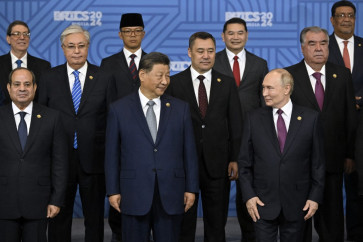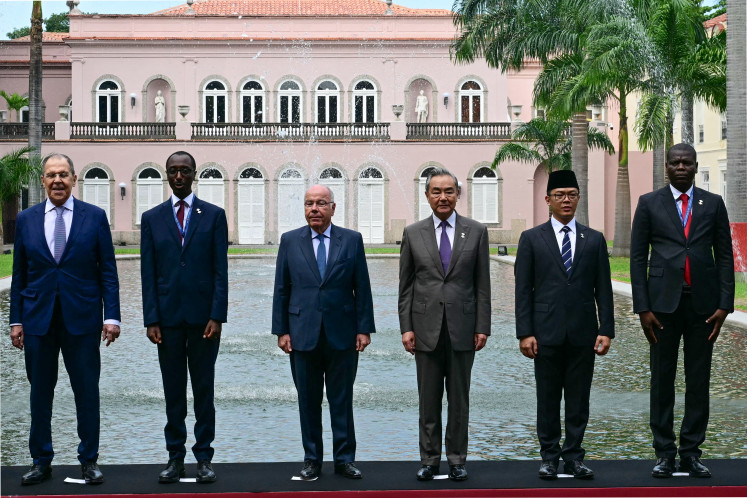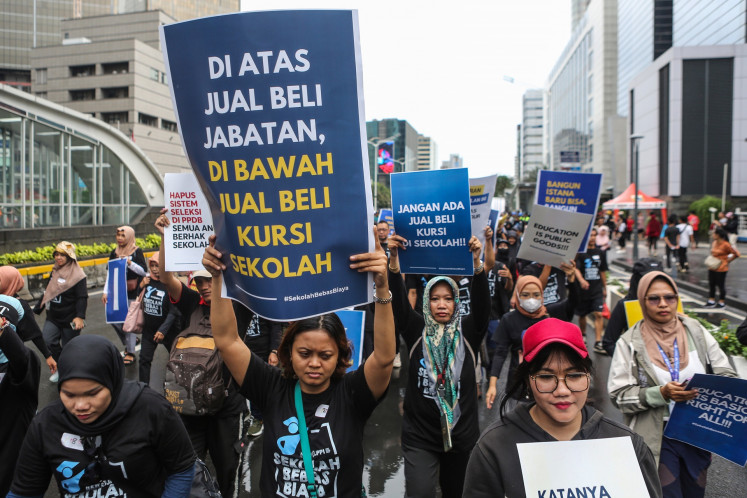An elegant, dignified way to clarify oneself
If you are associated with, implicated in, or accused of wrongdoings and wish to prove yourself innocent or clarify the facts, some obvious means are open to you
Change text size
Gift Premium Articles
to Anyone

I
/span>If you are associated with, implicated in, or accused of wrongdoings and wish to prove yourself innocent or clarify the facts, some obvious means are open to you.
Those accused of crimes or charged with unlawful acts can defend themselves before judges in court. They can hire lawyers to guide them through the legal language jungle and the intricacies of defense.
But what about cases have yet to reach the court? What about those whose names and credibility have been “politically and publicly” besmirched? How do they clear themselves?
Some opt to hold press conferences or talk to the media to clarify their positions and let the public know the “truth” — at least in according to their perspective and standpoint as “victims”.
Some, who cannot provide an instant response to the allegations visited upon them, choose to pursue a more difficult, but elegant and dignified way; by jotting down their own version of stories at a later time, either by themselves or with the assistance of others specially hired for the purpose.
Lt. Gen. (ret) Djadja Suparman is one of those who have resorted to writing a book in an attempt to clarify himself.
Djadja had something of a glittering military career in charge of the Brawijaya regional military command and the Jaya regional military command overseeing Greater Jakarta; the army’s strategic reserves (Kostrad) and the military staff and command school (Sesko TNI). He held these various positions during one of the most critical periods in Indonesian history — the beginning of reformasi era in the late 1990s and early 2000s. He uses the book as a medium to tell and explain his own versions of incidents in which he was among the limited persons having knowledge of the country’s critical episode.
Djadja has poured everything he knew and experienced into his book Jejak Kudeta (Traces of a Coup). He’s done this not only to inform the general public of historical details, particularly in the eight-year period service before he retired on Jan. 1, 2006, but also to prove that as an Indonesian Military (TNI) officer, he remained neutral and was never associated with political elites and opinions.
The title speaks for itself but the book places a great emphasis on Djadja’s personal role in “three big events”.
The first big event was, in Djadja’s own terms, a planned coup against then president Soeharto. As commander of the Brawijaya regional military he was approached by a group of “coup plotters” and asked to provide a “leeway” for
them to create chaos that would pave the way for the removal of Soeharto from power.
Djadja says in the book that he rejected the request and the attempt failed because Soeharto “skilfully” handed over the presidency to his deputy, BJ Habibie.
The second big event (also in Djadja’s terms) was a planned coup against then president BJ Habibie while Djadja was in charge of the Jaya regional military. This time the coup plotters asked Djadja to engineer conditions for a mass protest in the People’s Consultative Assembly (MPR) and House of Representatives (DPR) compound, to provoke the fall of Habibie from presidency.
Once again, Djadja rejected the request and Habibie’s presidency eventually came to a halt, not through the pressure of organized people power, but after his accountability speech, and particularly his failure to ensure that Soeharto was held accountable for abuse of power.
Djadja’s third big event was the attempt to remove then president Abdurrahman “Gus Dur” Wahid from power. The only difference from the first and second big events was that in the third case Djadja was accused of being among the conspirators. The accusation against him was made during his three-month leadership of Kostrad and his subsequent three-year tenure at Sesko TNI.
Djadja denied all accusations of involvement in the planned coup, even during a face-to-face meeting with the president himself. According Djadja, Gus Dur eventually came to believe in his innocence, but only after he was no more in office.
In general, the book offers a new insight on the critical period of the beginning of reformasi, from a field commander’s point of view. Still there are some “missing links” that Djadja still fails to connect. Perhaps, there will be more TNI officers willing to share their experience and knowledge so that a full picture of the events can be drawn and eventually be used as an important lesson of the past.
Jejak Kudeta (1997-2005), Traces of a Coup
Lt. Gen. (ret) Djadja Suparman
Yayasan Obor Indonesia, 2013
454 pages









